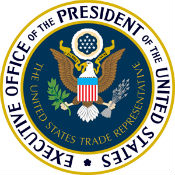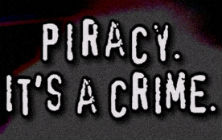 If intellectual property rights advocates are to be believed, patents, trademarks and copyrights are the virtual backbones providing strength and support to billions of dollars in trade.
If intellectual property rights advocates are to be believed, patents, trademarks and copyrights are the virtual backbones providing strength and support to billions of dollars in trade.
When people come up with great ideas, branding and products while protecting them via the above mechanisms, creators and society are much better off, they argue.
While the debate over that assertion will carry on indefinitely, an inventor in the United States believes that one of his ideas could actually help to protect products under copyright by providing a revolutionary new service to consumers.
Surprisingly simple in its goals, patent application US 14/668,983 describing ‘WebCinema’ aims to change everything for Hollywood and its customers.
“The technology of WebCinema is an online viewing platform that allows the public to view first-run movies on internet-capable electronic devices. WebCinema transforms the current state of new-movie viewing technology by allowing consumers to have complete choice,” applicant Reilly Johnson explains.
“Technology now makes it possible for today’s modern society to have control, convenience and choice over their movie viewing options. WebCinema is not just a new and useful process for viewing first-run movies, it provides people with that control, convenience, and choice.”
Filed in March 2015 and published earlier this month, the application lacks the complex language often present in similar filings. However, what it lacks in gobbledygook it makes up for in common sense.
“The technology is an online viewing platform that allows first-run movies to be viewed on most electronic devices that have internet capability. This is not Netflix or Hulu, where the consumer is forced to wait for many months to view an anticipated movie. WebCinema is a new and useful process that enables the general public to completely control where and when they choose to conveniently watch new or currently released Hollywood-produced movies.”
In addition to offering convenience, Reilly Johnson believes that his ‘invention’ can also help to protect copyrights. Citing the success of Popcorn Time, he says there is “logical evidence” that a system like WebCinema could help Hollywood to capture missing revenue.
“With having new-movies available online the day they’re released, ‘piraters’ would have little incentive to steal movies. For these reasons, law-abiding consumers should be more likely to pay to view a new movie instead of risking the legal implications involved with accepting pirated materials,” Johnson explains.
But despite its reluctance to do so, it’s unthinkable that Hollywood hasn’t already considered its options when it comes to releasing first-run content in a timely manner. However, it has considerable obstacles to overcome if brand new movies are to appear online the same day they debut in cinemas.
For example, the companies running cinemas in the U.S. would be furious at the proposal – and they won’t be smiling after reading Johnson’s perception of their business premises either.
“[WebCinema] will eliminate the trip to the theater, the cost of gas, limited show times, standing in long lines on opening weekend, sold out showings, the outrageous cost of refreshments, using public restrooms [and] stepping on ‘sticky stuff’,” the inventor explains. But there’s more.
“[WebCinema will prevent customers] being forced into bad seats at a crowded theater, sitting in an unclean seat, being stepped on, endless previews, plus the annoying people talking behind you and texting in front of you!” he continues.
“WebCinema also eliminates some potential health hazards. The TV newsmagazine 20/20 (ABC, Mar. 7, 2014), reported that no laws exist requiring movie theaters to be cleaned. Investigators found numerous traces of bacteria related to food poisoning, feces, and staph. They also uncovered roaches, rodents, bedbugs, and used condoms!”
Gulp.
While the patent application appears to be little more than a collection of ideas (and ideas alone can’t be patented), it certainly describes a service that millions would subscribe to if the price was right.
However, no matter how inconvenient cinemas are viewed by some, it will be a long time before Hollywood throws the silver screen to the dogs. So, in the extremely unlikely event that Johnson’s application is granted, he shouldn’t expect to make any money off it anytime soon.
Source: TorrentFreak, for the latest info on copyright, file-sharing, torrent sites and ANONYMOUS VPN services.

 This week we have four newcomers in our chart.
This week we have four newcomers in our chart.  If intellectual property rights advocates are to be believed, patents, trademarks and copyrights are the virtual backbones providing strength and support to billions of dollars in trade.
If intellectual property rights advocates are to be believed, patents, trademarks and copyrights are the virtual backbones providing strength and support to billions of dollars in trade. The anti-piracy business is booming, with thousands of companies making a decent living by helping rightsholders to protect their work.
The anti-piracy business is booming, with thousands of companies making a decent living by helping rightsholders to protect their work.
 As reported last week, the RIAA and MPAA have recently made their
As reported last week, the RIAA and MPAA have recently made their  Under U.S. law streaming and file-sharing are seen as two different offenses. Not just from a technical point of view, but also in the way they are punished.
Under U.S. law streaming and file-sharing are seen as two different offenses. Not just from a technical point of view, but also in the way they are punished.